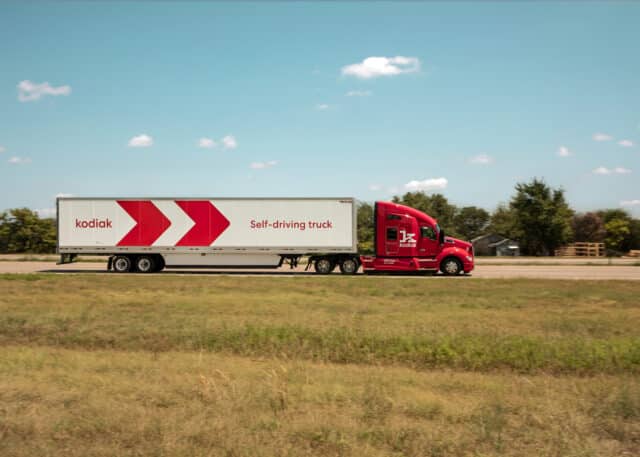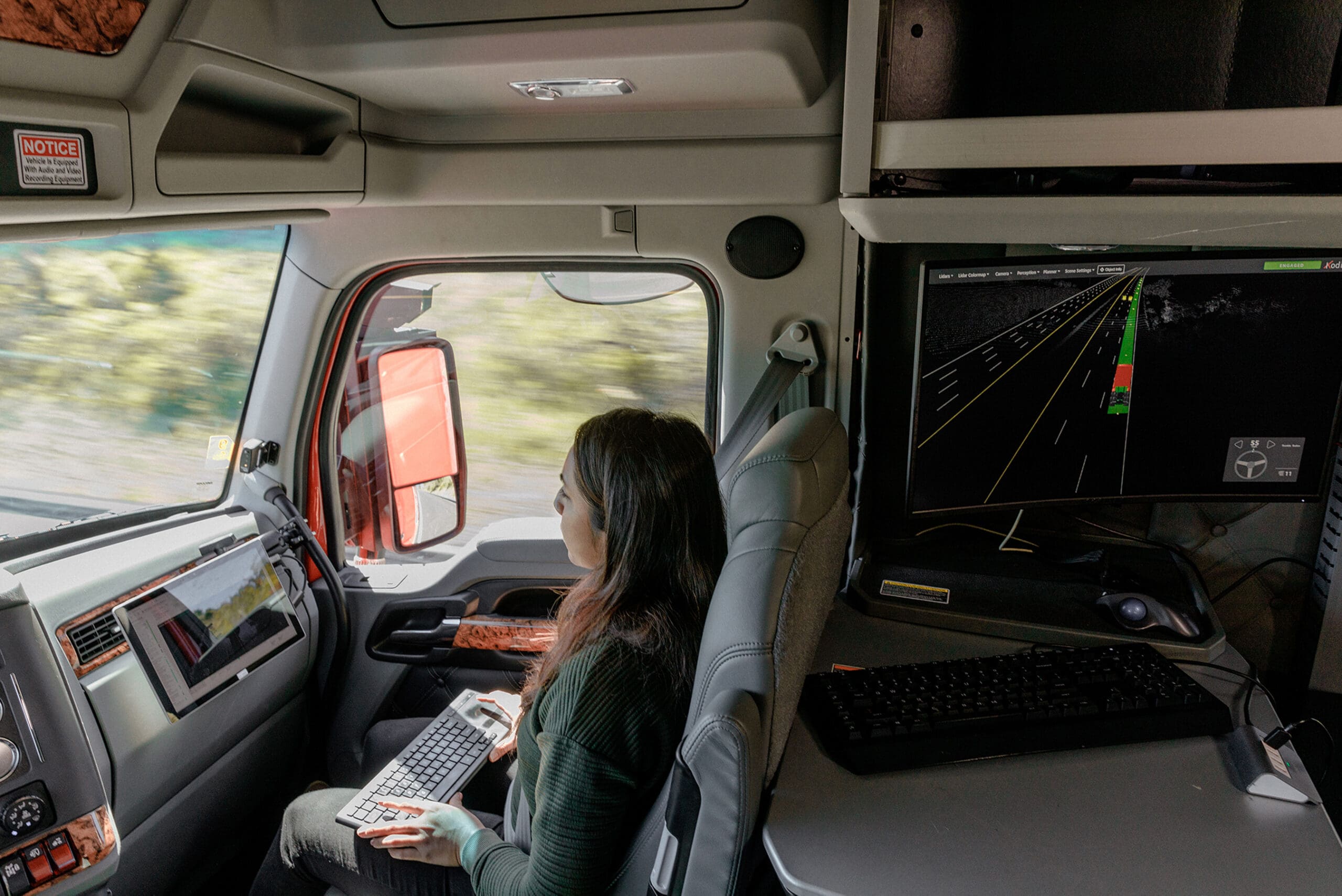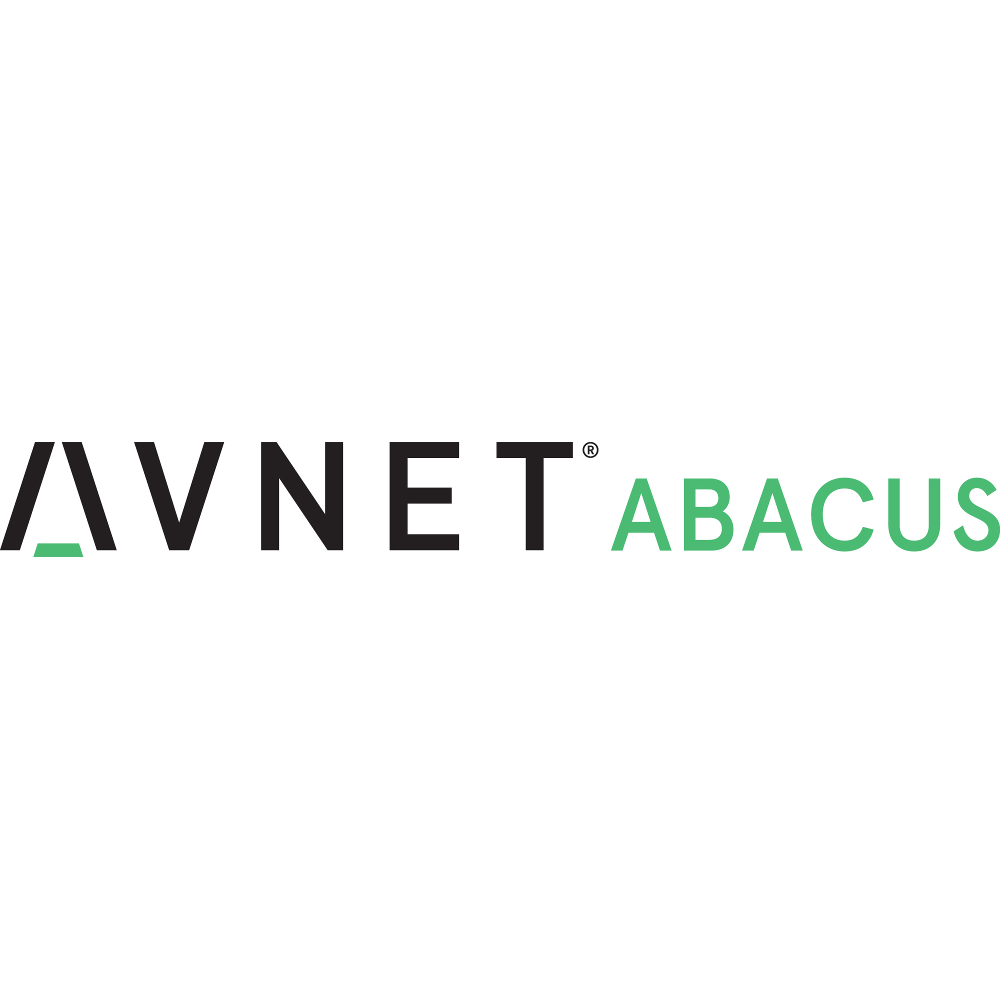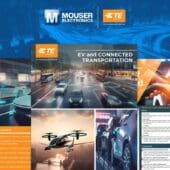Kodiak integrates autonomous technology into commercial truck fleets
Commercial trucking is the backbone of the American economy. This has never been more apparent than in recent years, when Covid-19 related supply chain disruptions hit the country. In addition, it is increasingly difficult to find people who want to drive trucks. The average age of a truck driver in the US is about 48 years; for long-haul truckers the median age is even higher, which could explain why 80.000 drivers were absent in the US last year according to the American Trucking Association.
Kodiak Robotics' autonomous technology for long-haul trucks, KodiakDriver, includes a modular system of hardware, called SensorPods™, that integrate most of the sensors needed to “see” their surroundings using standard mirror mounting points on the truck.
Many industry analysts believe that commercial trucking is poised to be the leading application of autonomous technology in vehicles as highway driving is a less complicated problem to solve compared to the many subtleties involved in navigating roads. secondary roads and city streets.
In addition, from an economic point of view, the trucking sector can take better advantage of the autonomy of the vehicle. The cost of an autonomous driving system is more easily amortized in a truck that travels between 1,5 and 3 million kilometers. To this we must add that, on average, a truck driven by one person is only used 7,5 hours a day due to the limitations imposed on hours of service.
An autonomous truck can double or even triple truck utilization by only stopping to refuel, receive, and pick up new loads.
Kodiak Robotics tackles long-distance trucking autonomy
In this context, Kodiak Robotics was founded in 2018 with the aim of developing autonomous technology for the long-haul segment that can be integrated into operator fleets. Kodiak's standalone solution, kodiakdriver, includes a modular hardware system, called SensorPods™, which integrates most of the sensors needed to “see” their surroundings using the typical mirror mounting points on the truck. The modular design of this equipment allows its connection and disconnection in a few minutes, which offers the possibility of reaching the maximum operating time of the fleet without the need for specialized technicians to install the devices and recalibrate the sensor network.
Kodiak relies exclusively on its Sparse Maps, which contain the information necessary to enable autonomy, rather than resorting to high-resolution maps that contain a large amount of data and are difficult to update. The maps are complemented by Kodiak Vision, a comprehensive sensor fusion system that uses data from radar, cameras and lidar to see the road in all conditions.
Since launching its operations center south of Dallas, Texas, USA in 2019, Kodiak has focused on securely building a system capable of handling the demanding long-haul environment. This year Kodiak has completed several pilot projects with large companies in the freight industry, including four non-stop roundtrips between Dallas and Atlanta in which kodiakdriver it worked continuously. Since August 2022, Kodiak has autonomously delivered merchandise in Texas for IKEA, seven days a week, between a distribution center located in Baytown and the IKEA store in Frisco.
“The Kodiak team is made up of some of the most experienced people in the autonomous vehicle industry,” said Don Burnette, the company's Founder and CEO.
“This has allowed us to follow the most direct path to success instead of the trial and error method that was common when this industry was born.”
Vicor power solutions exceed demanding sensor requirements
Kodiak quickly identified three areas in the trucking environment where power system design must be unforgiving: reliability, efficiency, and the ability to monitor the system.
These requirements led Kodiak to collaborate with Vicor Corporation's custom design division, Vicor Power Systems (VPS), a Vicor subsidiary. This division designs high-performance, high-density power systems based on Vicor power modules, which are ideal for autonomous vehicle systems.
Kodiak's power system uses various Vicor power modules to meet the needs of its sensors that require 12, 24, and 48V power buses. Among them are Vicor's NBM6123, BCM6123, PRM and VTM. All power modules are part of Vicor's SM ChiP (converter housed in package) line and offer reliable and highly efficient power conversion in very small packages.
Vicor also provided design support to provide each component in the system with controllable outputs and to optimize component health by monitoring voltage and current across all Kodiak sensors. The Kodiak platform includes four basic buses for specific sensors, actuators, and processors. Each output is individually monitored and controlled via a proprietary CAN bus.
Vicor also provides battery charging for a 48V system when the truck is parked and plugged in. The AC grid-tied power system maintains the battery charge level when the engine is not running, allowing service technicians and engineers to use the vehicle indoors. A 48V system from Vicor in the truck allows Kodiak to reduce the size of the wiring, thus saving weight and space, as well as the use of the vehicle in high power applications.
Sea Change for the Future of Commercial Transportation and Truckers
Commercial transportation is undervalued but essential for global economic stability. Kodiak is poised to revolutionize this industry with autonomous haulage, which will enable more reliable and efficient trucking.








